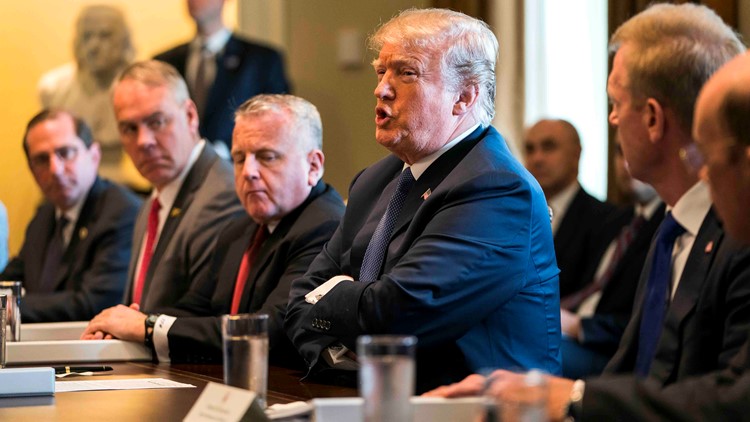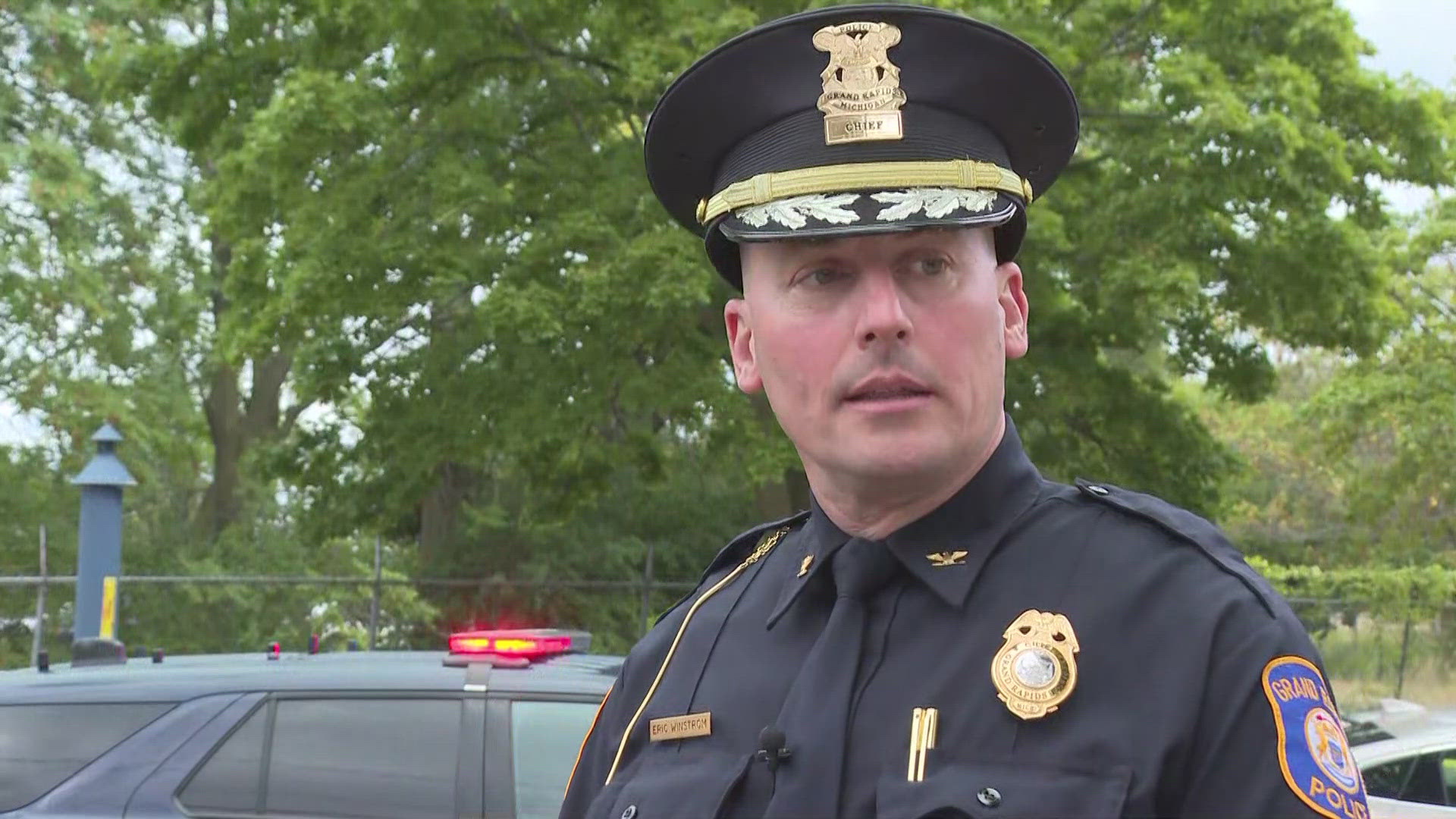WASHINGTON — Less than two weeks after declaring his intention to withdraw U.S. troops from Syria, President Trump said Monday he will decide soon how to respond to a chemical weapons attackattributed to Bashar Assad's government — options that include the kind of missile strike Trump authorized last year.
'We'll be making some major decisions over the next 24 to 48 hours," Trump said during a Cabinet meeting a day after saying there would be "a big price to pay" by Syria and Assad. "This is about humanity ... and it can't be allowed to happen," .
Trump plans to meet later Monday with top military advisers to discuss the "heinous," "atrocious," and "horrible" attack that included children of anti-Assad rebels.
The Trump administration has also asked the United Nations Security Council to authorize an independent inquiry into the reported chemical weapons attacks. Syria has denied involvement.
International officials, meanwhile, worked Monday reviewing claims by Syrian opposition leaders that Assad's government was behind a poison gas attack that killed at least 40 people in a rebel-held town near Damascus.
In addition to Assad and Syria, Trump and his aides have also criticized Russian President Vladimir Putin and his government for not monitoring Syrian. They have also blamed Iran for its support of the Syrian regime.
In terms of responsibility, Trump said: “If it’s the Russians, if it’s Syria, if it’s Iran, if it’s all of them together, we’ll figure it out.”
Defense Secretary Jim Mattis, in brief remarks Monday morning, pointed first at Russia for its failure to corral Syria’s use of chemical weapons and promised allied action to confront it.
“The first thing we have to look at is why are chemical weapons still being used at all when Russia was the framework guarantor of removing all the chemical weapons,” Mattis said. “And so, working with our allies and our partners from NATO to Qatar and elsewhere, we are going to address this issue.”
Trump ponders action a year after authorizing a missile strike on Syria in the wake of another chemical weapons attack.
The president is also assessing his options with a new national security adviser. John Bolton officially began work on Monday, and attended the Cabinet meeting with Trump.
Some lawmakers who are calling for a strike on Syria also faulted Trump over his call of a withdrawal from Syria.
Sen. John McCain, R-Ariz., chairman of the Senate Armed Service Committee, said Trump's "premature" declaration emboldened Assad to strike at the rebels.
"President Trump was quick to call out Assad today, along with the Russian and Iranian governments, on Twitter," McCain said. The question now is whether he will do anything about it. "
During a March 29 speech on infrastructure, Trump said, "we're knocking the hell out of ISIS. We'll be coming out of Syria like very soon. Let the other people take care of it now."
In succeeding days, Trump and aides issued a series of statements saying full withdrawal would wait until after the Islamic State is completely defeated.
Trump and his allies also criticized Syrian ally Iran, as well as Putin and Assad. House Republican leader Kevin McCarthy, R-Calif., tweeted that "there must be immediate and severe consequences from the international community" for the chemical weapons attack.
Contributing: Tom Vanden Brook



